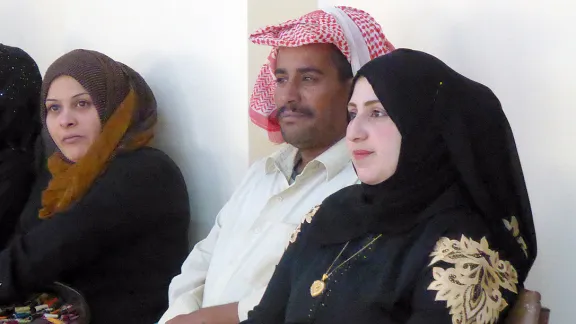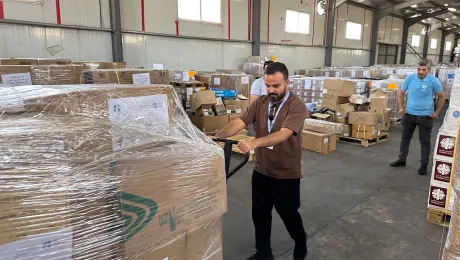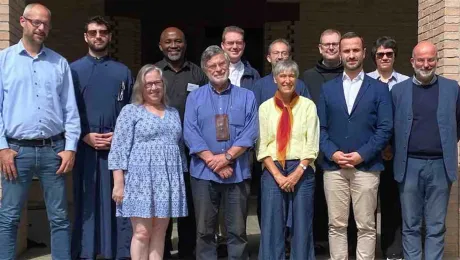
Peace-building workshop in Al Mafraq. Photo:LWF/ H. Martinussen
Jordanians and Syrian refugees work on “Peace-Building and Hygiene Promotion”
(LWI) – The Lutheran World Federation (LWF) and Islamic Relief Worldwide (IRW) have started their first joint project in Al Mafraq, Jordan. Working with Syrian refugees and the Jordanian host community, the project conducts workshops for 300 people to promote hygiene awareness and peace-building. The first workshop with 25 participants started at the beginning of this week.
Al Mafraq is the host community closest to the Za’atari refugee camp for Syrian refugees. While Za’atari is housing 85,000 people, about half a million Syrians are living in neighboring towns. The co-habitation results in conflicts over resources such as housing and access to education. “They host us very well” Muna, a mother of 2, says. “But we have two major issues: The children have conflicts with local children in school, and the rent increases every year”. Parents tell of long waiting lists for local school, of separate schooling for Jordanians and Syrians and of physical violence between students.
“There is a competition for resources” Dr Gideon Saad, program manager of the LWF country program in Jordan says. “By combining these two very different things – sanitation and hygiene with conflict resolution, we address the problem from two sides: we help people to improve living standards while resolving tensions”.
The project will be running for three months, training men and women of both nationalities in weekly courses to promote awareness. At the end of the project duration, 25 selected participants will receive a “Train the Trainer” workshop to conduct similar trainings themselves.
“The aim of the project is to increase the level of understanding between Syrian refugees and Jordanian host communities regarding their living situation, mentality, values and culture” Elhadi Abdalla Mohammed, Country Director of IRW Jordan, says. “We aim to equip community leaders and parents to mitigate and resolve conflicts in their communities”.
Participants respond well to the workshop. “In the beginning I did not speak to the Syrians who had moved in around my house,” a Jordanian woman who is participating in one of the workshops says. “But then our children began to play together and the Syrian mother began giving my children sandwiches and sending greetings to me. Gradually, the relationship grew through our children”.
Other participants of the workshop expressed how they had now known each other before attending the peace-building training offered by the LWF and IRW. The workshops are run in an inclusive fashion with participants actively and openly sharing their experiences and impressions of the situation in Al Mafraq to build bridges that begin on a personal level and spread to the communities.


